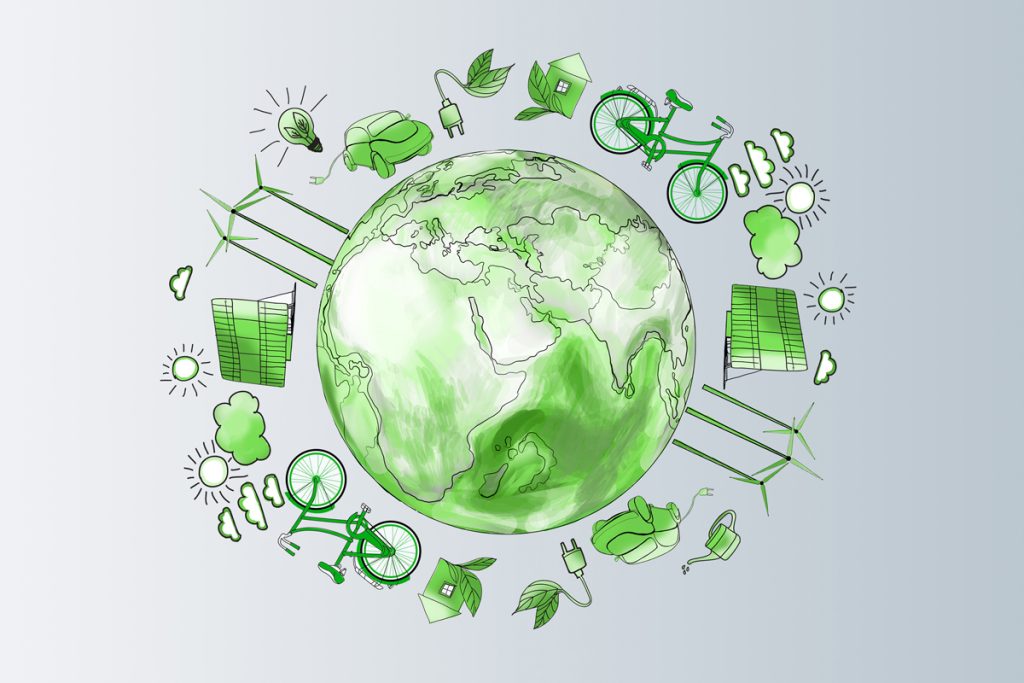Biotuff encourages Australians to take the leap to become more environmentally conscious. “Social media is currently flooded with masses of New Year’s resolutions,” Nadia Steele from Biotuff says. “From leading a healthier lifestyle to spending less money, but with many across the globe feeling the impact of climate change, having an environmentally driven household should be a prime thought for many of us. Our everyday choices make a massive impact on the world around us. So, making a change does start with all of us.”
TOP 5 ECO-FRIENDLY HOUSEHOLD TIPS
Make a Household Environmental Plan
Like businesses, families and households can also develop an environmental plan. Reduce, recycle and reuse should be the mantra! For example, consider reducing the number of times you use the household car, starting a compost pile, or being more vigilant with your recycling. Looking around your home and seeing where you could increase your environmentally friendly actions is a beautiful way of living. “Choosing to walk or bike to work a few days per week or starting up a carpool system can help reduce your emissions and help the environment,” Steele says. “Plus, it sets a wonderful example to our children and allows them to see the important role we all play in helping our environment.”
Other ideas include:
- Choosing more sustainable products for your everyday life
- Refuse disposable coffee cups and invest in a reusable option
- Stop purchasing non-biodegradable or compostable plastics
- Consider eco-friendly refillable water bottles
- Replace old light bulbs with energy-saving options
- Planting native trees
- Conserving more water
- Recycle consciously and correctly
Get Active in Your Local Community
Locally communities can band together to increase their eco-friendly stance and create a more sustainable and environmentally friendly suburb. Starting a weekly or monthly litter run, contacting the local council about native tree restorations, and researching what your local council needs to lead a more sustainable future is a significant step forward. “Communities that band together on an environmental front have been proven to increase interest in eco-friendly activities and encourage others to get involved,” Steele says. “It’s as easy as volunteering your time for local clean-ups and conservation projects.”
Get Savvier with Eco-Friendly Options
Changing the way we purchase and use products and choosing sustainable options can make an impact. The more popular biodegradable and compostable products become, the more widespread they will be utilised in everyday life. “It’s as easy as switching out some of your everyday items, such as plastic wrap, nappy bags, sandwich bags, and even dog waste bags, with a biodegradable, compostable option,” Steele says. “Businesses can also opt for better packaging with biodegradable, compostable mail bags and recyclable preferences.”
Water, Water Everywhere
Another way everyday households can help the environment is to consider their water usage and cut down as much as possible. “Installing water-saving devices is one way a home can cut down on their water wastage,” Steele recommends. “Also keep vigilant with any possible leaks and fix them accordingly.”
Cut Down on Rubbish
Cutting back on the amount of rubbish you generate is also important. Use reusable items and make a stance again the number of throw-away things you buy and consume. Also, ensure you are recycling all the products you can correctly. Supporting environmentally friendly businesses is also a must for the future of our planet. “Choosing to no longer purchase certain items can hugely impact the amount of rubbish you create,” Steele says. “This can easily be monitored every week on your rubbish collection day on how full your bin is.”
It doesn’t need to be a life-changing choice. Becoming a more environmentally conscious household starts with simple steps that can significantly impact our precious world. “Just making small changes over a period of time can help you and your friends and family reduce their carbon footprint and help the earth,” Steele says. “If we all make collective steps to become more eco-friendly in our everyday approach, our earth will benefit as too the lives of our future generations.”



